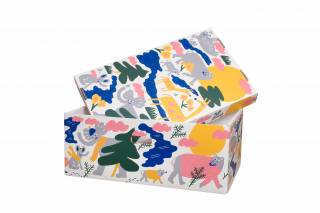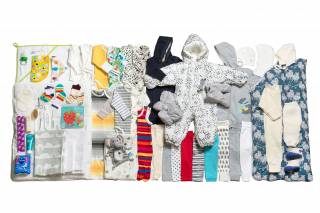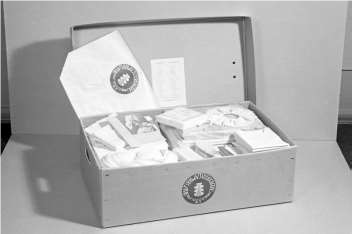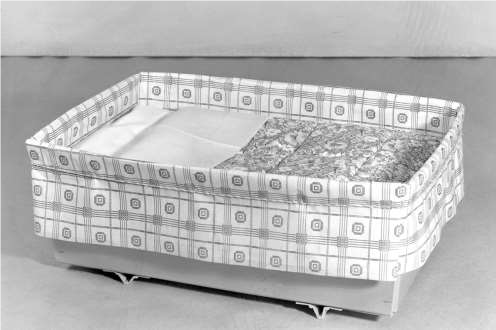In Finland, “baby box” is the common name of the maternity package, which offers a variety of baby clothes and care items for the newborn children in their first stage of life. The cardboard box containing these items can be used as a safe sleeping space for the baby.

 The 2018 version of the Finnish maternity package, containing 64 different items – Source: Kela
The 2018 version of the Finnish maternity package, containing 64 different items – Source: Kela
The maternity package was first introduced in 1938 for low-income mothers to respond to the low birth rate and high infant mortality rate in Finland in that period. Since 1949, the maternity grant has become available to all mothers with the condition of visiting a doctor, a midwife or a prenatal clinic within the first four months of the pregnancy. The idea was to encourage expecting mothers to access to maternal health care and health checkups, and through this, to contribute to the decline in mortality rates and better health outcomes for mothers and babies. Finland today is among the countries with lowest infant and maternal mortality rates.
The maternity grant scheme is administered by Kela – the Social Insurance Institution of Finland. Kela revises the contents of the baby box annually to ensure the quality and affordability of the package. The selection process also takes into account different health or social concerns. For example, most items are in neutral colors to be suitable for both boys and girls, the baby bottle was left out to promote breastfeeding, and more recently the box has become more environmentally friendly by including reusable nappies.


The Finnish baby box in the old days – Source: Finnish Labor Museum Werstas
The baby box is 80 years old already and it is still widely welcomed by Finnish caregivers. Two thirds of all mothers and 95% of first time mothers choose to receive the box instead of a 170 euros cash grant. Moreover, Kela has given the baby box as a gift to the Duke and Duchess of Cambridge in the UK and the Crown Princess and Prince of Sweden. Finnish embassies also take part in communicating about the baby box around the world. The Finnish Embassy in Tokyo reported that several cities in Japan have adapted the “neuvola” system (child health clinics) and the maternity package.
Several countries are experimenting with how maternity packages can be used to address local needs that vary from education to sleep practice to health issues, such as malaria in infants. Hopefully, the baby box can reach more and more people and contribute to enhancing the well-being of babies, mothers and families around the world.
by Yen Phan

Comments